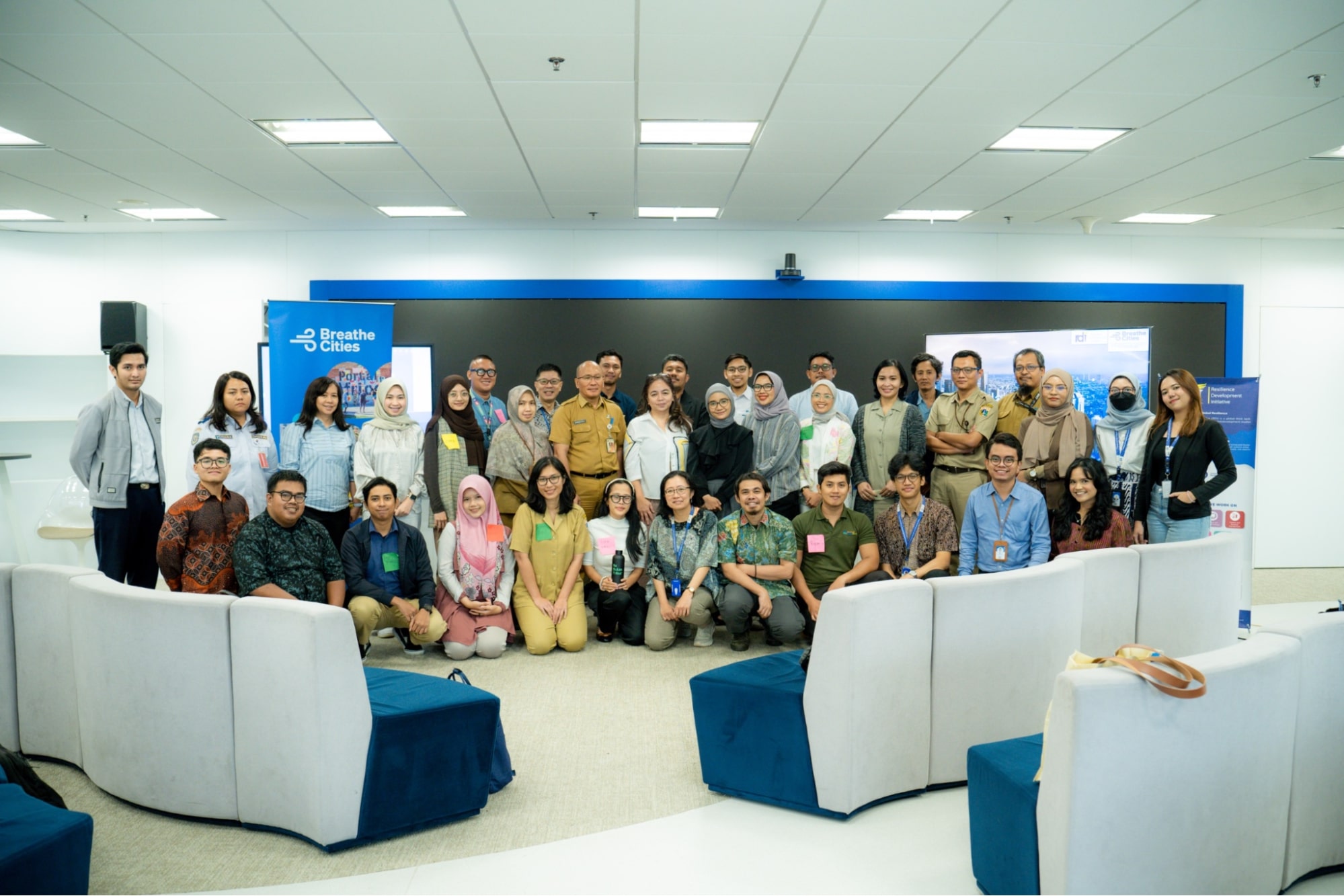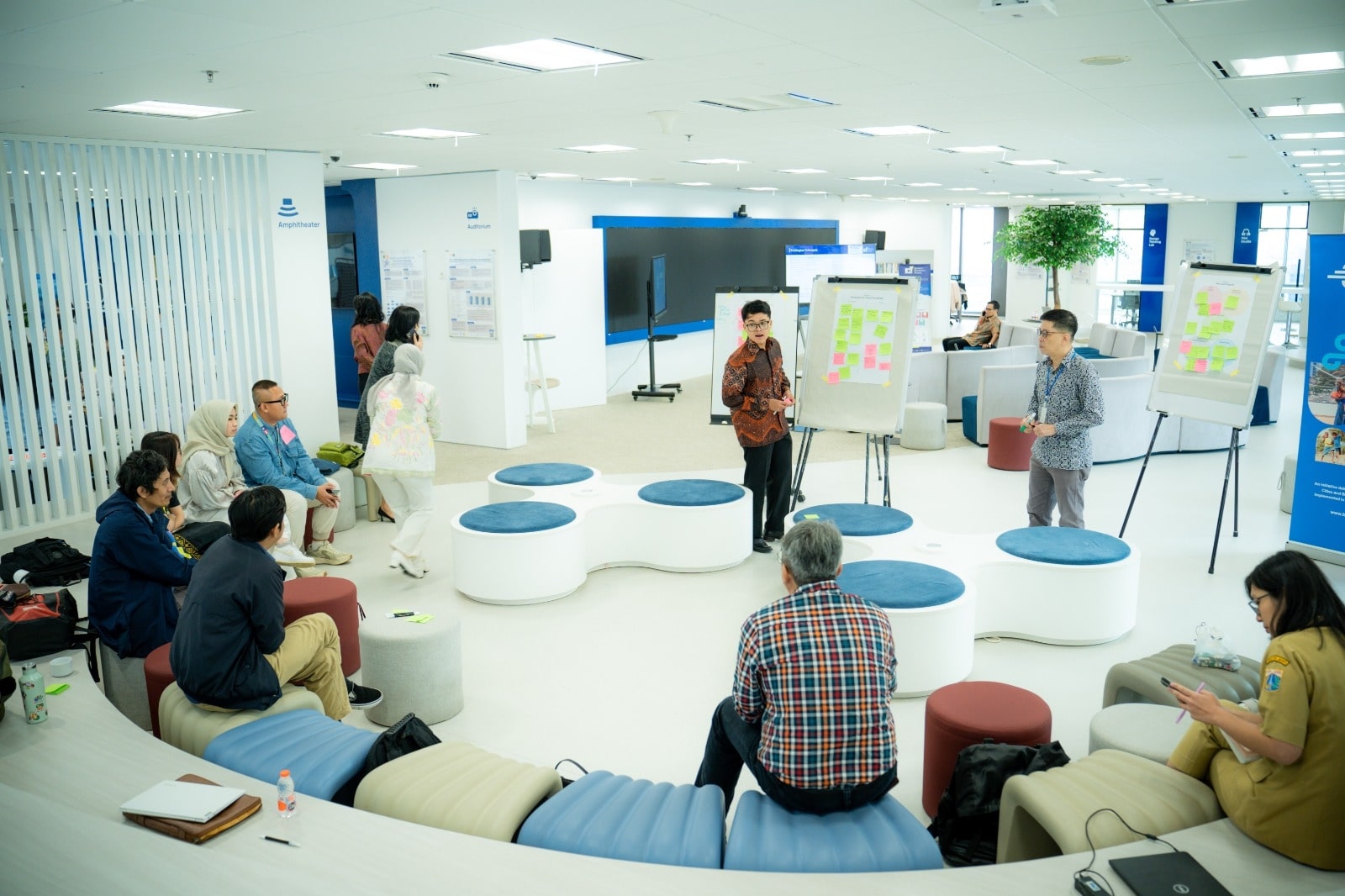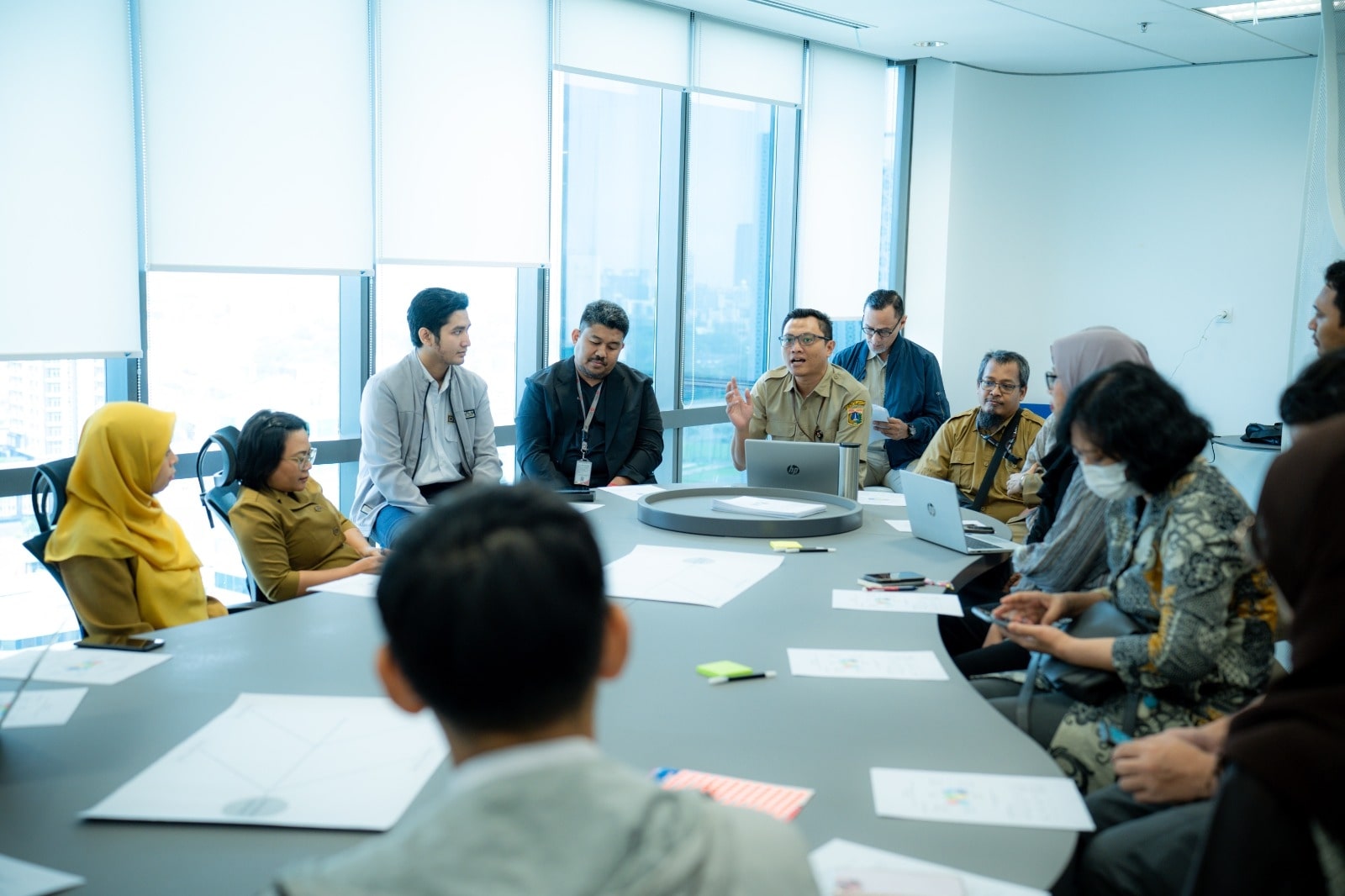Stakeholder Mapping and Partnerships for Air Quality Monitoring and Sensor Network Management in Jakarta

Participant and facilitator of Stakeholder Mapping and Partnerships for Air Quality Monitoring and Sensor Network Management in Jakarta
Source: Vital Strategies Documentation
On 17 June 2025, the Resilience Development Initiative (RDI) conducted a Focus Group Discussion (FGD) on “Stakeholder Mapping and Partnerships for Air Quality Monitoring and Sensor Network Management in Jakarta.” This FGD was part of the Breathe Jakarta programme, an initiative led in collaboration with the Jakarta Environmental Agency (DLH Jakarta), Vital Strategies, and RDI. The programme aims to develop a regulatory framework for the implementation of Low-Cost Sensors (LCS) to expand community-based monitoring networks and strengthen efforts in air pollution control across the city.
The session was officially opened by Rommel P.P. Pasaribu, S.T., Head of Community Engagement, Data, and Information Division of the Jakarta Environmental Agency, and Chintya Imelda Maidir, M.P.P., Indonesia Senior Country Coordinator of Vital Strategies. It was followed by an opening presentation by Iqbal Hafizhul Lisan, M.A., from RDI, who shared key findings from an ongoing study on participatory monitoring covering stakeholder mapping, partnership models, and potential funding mechanisms.

Focus Group Discussion (FGD) Session
Source: Vital Strategies Documentation

Focus Group Discussion (FGD) Session
Source: Vital Strategies Documentation
Participants were then divided into two discussion groups, which were held in parallel to allow for more focused conversations. Group 1 explored various possible partnership models that could be developed to strengthen collaboration among different stakeholders, including government agencies, private sectors, research institutions, and community organisations. The discussion aimed to identify how these stakeholders could work together more effectively to address the complex challenges of air pollution control in Jakarta.
Meanwhile, Group 2 concentrated on mapping and identifying potential funding opportunities to support air pollution control initiatives. Participants discussed different funding sources, including government budgets, international grants, private sector contributions, and innovative financing mechanisms that could be mobilised to ensure the sustainability of ongoing and future programmes.
At the end of the session, each group's facilitator delivered a presentation summarising the key insights, recommendations, and action points from their discussions. These presentations provided an overview of strategic directions that could be pursued to accelerate efforts in tackling air pollution issues in Jakarta.
RDI extends its deepest gratitude to all participants for their active engagement, valuable perspectives, and productive input throughout the discussions. It is hoped that this collaborative dialogue will serve as a strong foundation, fostering concrete actions and advancing collective efforts to improve air quality and safeguard public health in Jakarta.
Written by: Nadira Alyssa (Outreach Coordinator)

